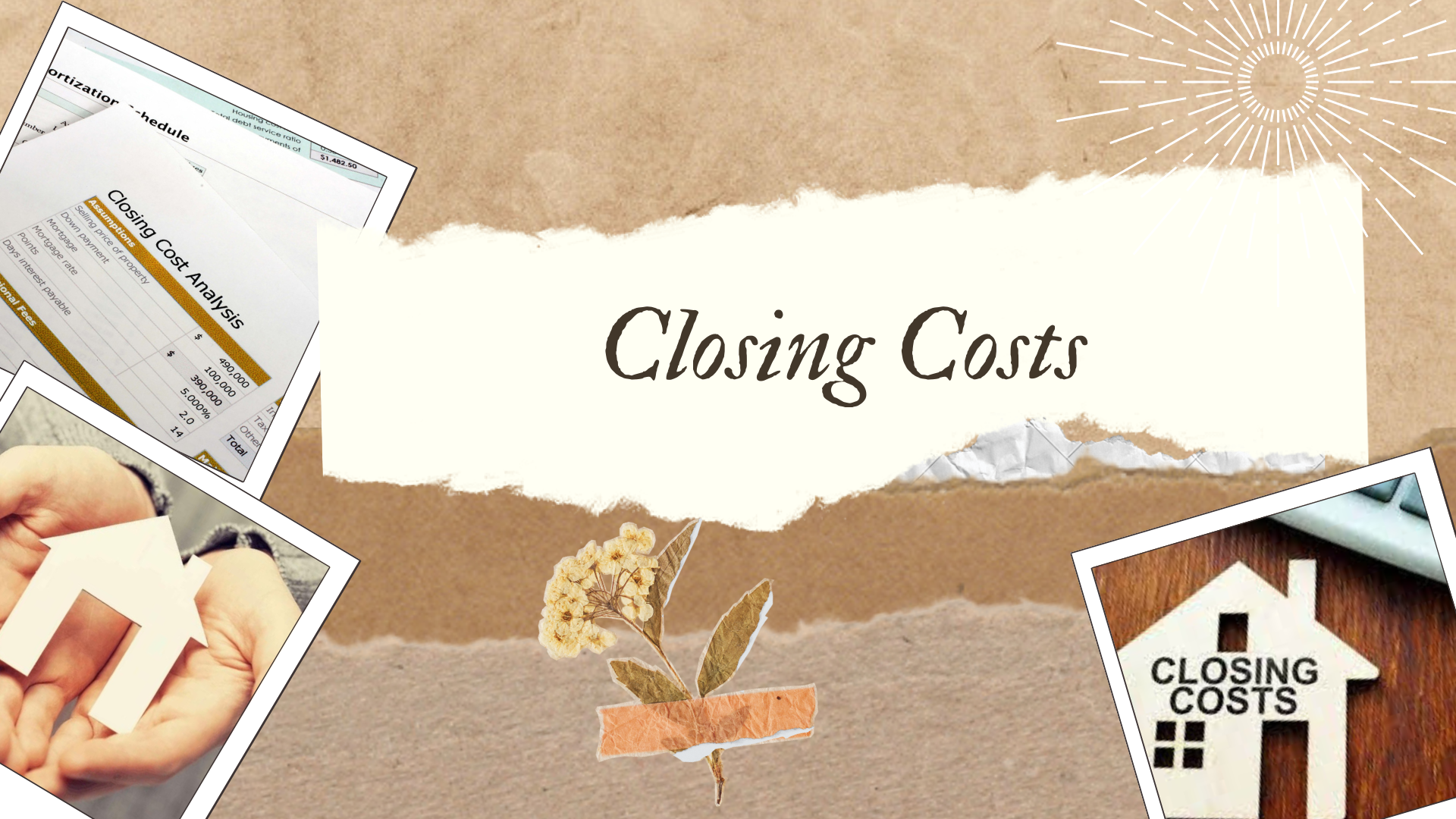
Demystifying Closing Costs
Closing costs are an integral part of the home buying process in California. These expenses can catch buyers off guard if they’re not adequately prepared. To help you navigate this financial aspect of purchasing a home, we’ve put together a breakdown of the various items involved in closing costs:
1. Loan Origination Fees:
– This is a fee charged by the lender for processing and underwriting your mortgage. It’s typically a percentage of your loan amount and can vary from lender to lender. This could be a big item and the buyer should check with their lender before making a decision of who they choose to work with.
2. Appraisal Fee:
– Lenders require an appraisal to assess the property’s market value. This cost covers the services of a licensed appraiser.
3. Credit Report Fee:
– Lenders pull your credit report to assess your creditworthiness, and there’s usually a fee associated with this service. Some lenders tend to absorb this fee.
4. Title Insurance:
– You’ll need both lender’s title insurance and owner’s title insurance to protect against any disputes over the property’s title.
5. Escrow Fees:
– An escrow company handles the transfer of funds and documents between parties. Buyers and sellers typically split the escrow fees.
6. Recording Fees:
– These fees cover the cost of recording the deed and mortgage with the county recorder’s office.
7. Home Inspection Fees:
– While not typically part of closing costs, it’s still an essential expense. Buyers pay for home inspections to ensure the property is in good condition. Some sellers choose to do the some inspections and provide the reports to buyers but buyers still can proceeds with their own inspection and pay for them.
8. Property Taxes:
– Depending on the time of year you close, you may need to prepay property taxes to cover the time you’ll own the property for the year.
9. Transfer Taxes and Fees:
– Some local governments impose transfer taxes or fees on real estate transactions, and these can vary widely.
10. Insurance Premiums:
– Lenders often require you to pay the first year’s premium for homeowners’ insurance at closing.
11. Private Mortgage Insurance (PMI):
– If you’re putting down less than 20% of the purchase price, you may have to pay for private mortgage insurance. This is typically included in your closing costs.
12. Homeowner’s Association (HOA) Fees:
– If you’re buying a property in a community with an HOA, the seller is usually responsible for paying HOA dues up to the closing date, and the buyer takes over from there. Sometimes, the buyer is requested to pay HOA fee one or two months in advance.
13. Notary Fees:
– Notaries are often required to witness and authenticate various documents during the closing process.
14. Courier Fees:
– These cover the cost of transporting documents between parties, such as the lender, title company, and escrow company.
15. Interest on Mortgage Loan:
– Mortgage interest is typically paid in arrears, so the buyer will pay interest from the closing date until the end of the month. This is often included in the closing costs.
16. Home Warranty:
– Some buyers choose to purchase a home warranty, which can also be included in the closing costs. If included in the contract, sellers could pay for this item.
It’s important to note that the exact items and their costs can vary from one transaction to another. Typically, closing costs in California can range from 1% to 3% of the purchase price of the home. Buyers should receive a Loan Estimate (LE) and a Closing Disclosure (CD) from their lender, which details the estimated closing costs. Review these documents carefully and compare them to ensure you understand all the fees associated with your home purchase.
In California, both buyers and sellers have their own set of closing costs, and it’s essential to be financially prepared for these expenses. Consulting with a knowledgeable and trusted real estate agent and lender can help you navigate the process and understand the specifics of your closing costs in California.


 Facebook
Facebook
 X
X
 Pinterest
Pinterest
 Copy Link
Copy Link